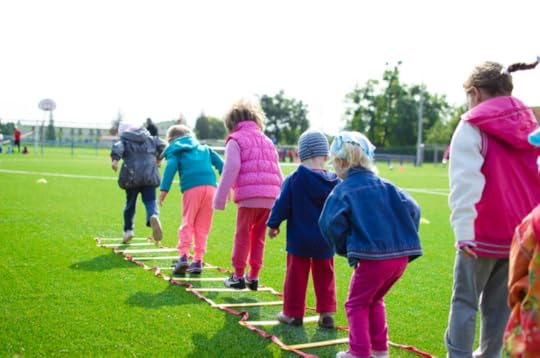The Power of Play and Interaction: Nurturing Social Skills and Emotional Growth in Children

Play is the universal language of childhood, a vibrant tapestry of imagination, exploration, and social connection. Through play, children learn, grow, and develop essential skills that shape their social and emotional well-being. From the earliest games of peek-a-boo to the intricate worlds of pretend play, children engage in a dynamic dance of interaction, communication, and emotional expression.
This article delves into the power of play and explores how parents, educators, and therapists can nurture social skills and emotional growth in children. If your child is struggling with social skills or you’re simply looking to provide additional support, consider exploring social skills groups Chicago offers a variety of programs tailored to different age groups and needs.
The Building Blocks of Childhood: Why Play MattersPlay is not merely a pastime; it’s a fundamental cornerstone of child development. Through play, children develop cognitive, physical, social, and emotional skills that lay the foundation for future success. Different types of play contribute to this multifaceted development. Solitary play allows children to explore their imaginations and creativity. Parallel play, where children play alongside each other without direct interaction, helps them develop social awareness and observation skills. Cooperative play, involving shared goals and collaboration, fosters teamwork, communication, and negotiation skills.
Emotional Growth Through PlayPlay is not just about having fun; it’s also a powerful tool for emotional development. Through play, children learn to express and regulate their emotions, develop empathy, and build resilience. Play provides a safe space for children to explore a wide range of emotions, from joy and excitement to frustration and anger.
Pretend play and role-playing offer unique opportunities for children to step into the shoes of others, experience different perspectives, and develop empathy. By imagining themselves in different roles and scenarios, children gain a deeper understanding of emotions, motivations, and social dynamics.
Play also helps children develop resilience and coping mechanisms. By encountering challenges, setbacks, and triumphs within the context of play, children learn to persevere, problem-solve, and bounce back from adversity. These experiences build their confidence and equip them to navigate the ups and downs of life.
Positive Customer Experiences:“My son used to struggle with sharing and taking turns, but after joining a playgroup, he’s learned to interact so much better with other children.” – Sarah M.“My daughter was very shy and withdrawn, but through pretend play and role-playing, she’s become more confident and expressive.” – David L.Negative Customer Experiences:“I tried to force my child to play with others, but it just made him more anxious and resistant. I’ve learned that it’s important to let him initiate social interaction at his own pace.” – Maria G.“My child loves playing video games, but I worry that it’s isolating him from real-life social interaction. I’m trying to encourage more balanced play activities.” – John S.Supporting Social Skills DevelopmentWhile play provides a natural foundation for social skills development, there are many ways parents, educators, and caregivers can actively support this process. One of the most effective strategies is modeling positive social behavior. Children learn by observing and imitating the adults around them. By demonstrating empathy, kindness, cooperation, and effective communication, we provide a positive example for children to follow.
Creating opportunities for socialization is crucial. Organize playdates, enroll children in group activities, and encourage participation in community programs. These experiences provide valuable opportunities for children to interact with peers, practice social skills, and build friendships.
Supporting Social Skills Development:
Model positive social behavior.Create opportunities for socialization.Provide guidance and support during play interactions.Encourage turn-taking, sharing, and cooperation.Help children learn to express their emotions appropriately.Teach conflict resolution skills.Provide positive reinforcement for positive social interactions.Be patient and understanding.Therapeutic Approaches to Social Skills DevelopmentFor children who require additional support in developing social skills, therapeutic interventions can be highly beneficial. Social skills groups provide a structured and supportive environment for children to practice social interaction, learn new skills, and build confidence. These groups often use a combination of activities, games, role-playing, and direct instruction to teach social skills, such as initiating conversations, maintaining eye contact, understanding social cues, and resolving conflicts.
ABA therapy can also be an effective tool for social skills development. ABA therapists use evidence-based techniques to teach social skills, reduce challenging behaviors that may interfere with social interaction, and promote positive social behaviors. ABA therapy can be tailored to the individual needs of each child, focusing on specific skills and goals.
If you’re seeking therapeutic support for your child’s social skills development, research qualified providers in your area. For instance, if you’re located in or near Tinley Park, look for reputable ABA therapy Tinley Park providers with experience in working with children on the autism spectrum or those with social communication challenges.
ConclusionThe power of play and interaction in nurturing social skills and emotional growth in children cannot be overstated. Through play, children learn to navigate social rules, communicate effectively, express their emotions, and build resilience.
By creating supportive environments, modeling positive behavior, and providing opportunities for socialization, we can empower children to develop the social and emotional skills they need to thrive in the world around them. For children who require additional support, therapeutic interventions like social skills groups and ABA therapy can provide valuable guidance and skill-building opportunities. Let’s harness the power of play and interaction to unlock the social and emotional potential within every child.
The post The Power of Play and Interaction: Nurturing Social Skills and Emotional Growth in Children appeared first on Geek Mamas .



